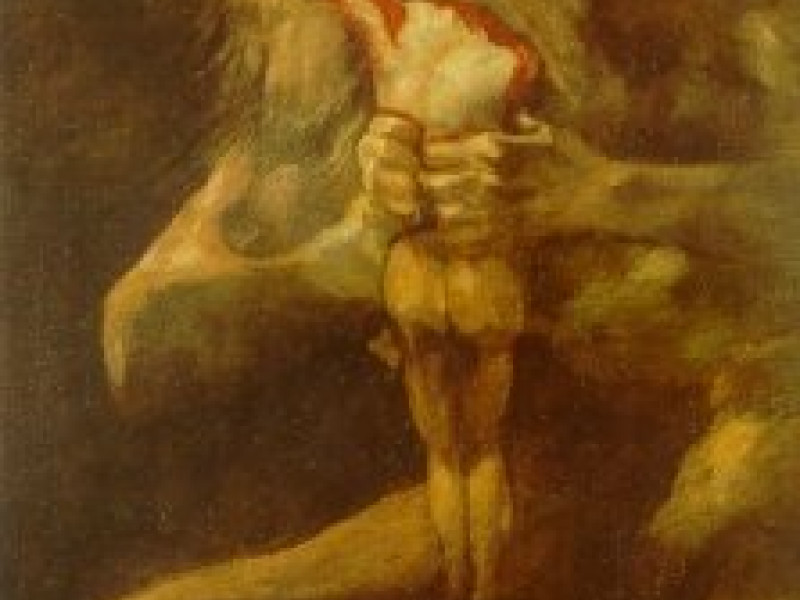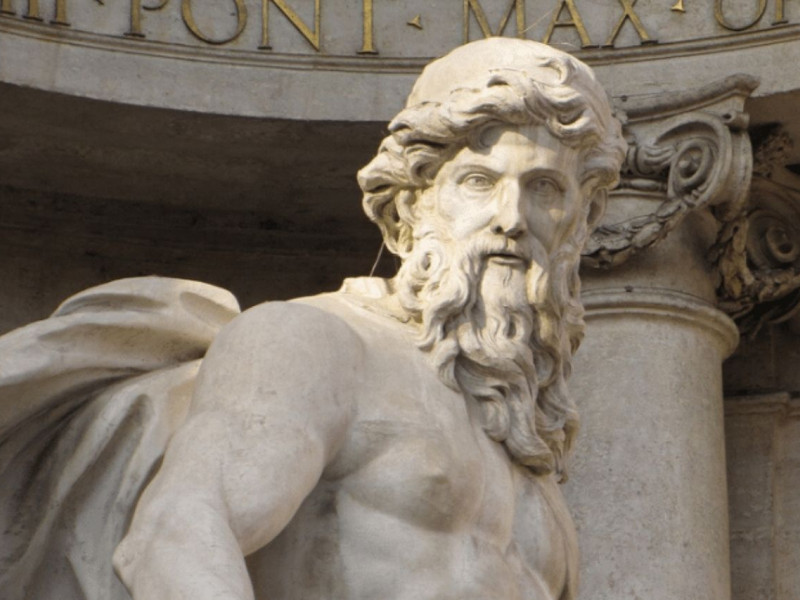Protogonus (Phanes)
Creator god. Protogonus (Protogonos) was the first god to be born from the Cosmic Egg (World Egg), which Chaos and Aether had reproduced according to the Orphic Creation Myths. Protogonus' name mean "First Born", and it was he who had created the universe.
Protogonus had three different names. Protogonus was popularly known by the name Phanes, the golden-winged god of light and love. His other names were Ericapaeus (Power) and Metis (Thought). These three other names represented the three different aspects of Protogonus' powers.
Protogonus was the first supreme ruler of the universe.
Most scholars identified Phanes/Protogonus with Eros, the Greek primeval god of love. Like in Hesiod's account about the Creation, Eros sprung out of Chaos at the same time as Gaea and Tartarus, so Eros was a primeval god unlike later myths, where he was known to the Hellenistic world as the mischievous son of Aphrodite (Venus), whom the Romans called Cupid. As Eros, he was often called Bromios (Thunderer), which was the same epithet as Dionysus.
There is some confusion over whether Nyx (Night) was his mother, wife or daughter. The source that I have with me says that Nyx was his daughter whom he had sex with to beget Heaven (Uranus) and Earth (Gaea).
As Phanes, he was seen a sun god or the god of light. Phanes had four eyes, and heads of various animals. Phanes was depicted as a sexless god or a god with both sexes (an androgynous being, ie a Demiurge) with golden wings. Phanes was also invisible but he radiated pure light.
Protogonus or Phanes has also been identified with the god Zagreus or Dionysus, or he was Dionysus. When Zeus became powerful, he swallowed Protogonus and all things that Protogonus had created. Zeus then recreated a new world. Then Zeus copulated with his own daughter, Persephone, and Protogonus was reborn as Zagreus or Dionysus. The Titans then killed Zagreus, but Zeus saved the heart. Zeus swallowed Zagreus' heart and then mated with a mortal woman named Semele, and she gave birth to Dionysus, the reincarnation of Protogonus/Zagreus.
Related Information
Name
Protogonus, Protogonos, Πρωτογονυς – "First-Born".
Phanes, Φανης – "Revealer".
Ericapaeus – "Power".
Metis, Διόνυσος – "Intelligence".
Eros (Love)?
Dionysus?, Διόνυσος
Sources
Rhapsodic Theogony.
Orphic Hymns.
Dionysiaca was written by Nonnus.
Theogony and Works and Days were written by Hesiod.
By Jimmy Joe



